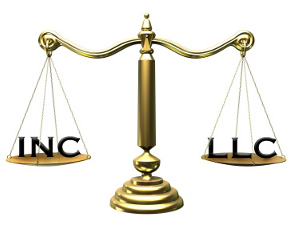 Almost anyone in business for him or herself seems to have a strong opinion one way or another on whether an S Corp or an LLC is the best small business entity. It is probably not uncommon to find a Certified Public Accountant somewhere behind this unusual passion, since CPAs are known for recommending their favorite business entities to clients. But which entity is the best for your Massachusetts or Cape Cod business? This article highlights some of the most important factors consider.
Almost anyone in business for him or herself seems to have a strong opinion one way or another on whether an S Corp or an LLC is the best small business entity. It is probably not uncommon to find a Certified Public Accountant somewhere behind this unusual passion, since CPAs are known for recommending their favorite business entities to clients. But which entity is the best for your Massachusetts or Cape Cod business? This article highlights some of the most important factors consider.
Liability Concerns:
Both the “S” Corporation and LLC are legal entities that protect their owners from personal liability, yet allow for any losses to be deducted personally to the extent of each owner’s investment. The mechanics of these qualities work differently in LLCs and S Corps. due to the IRS’ treatment of these entities, but both can be equally advantageous in this respect. Understanding these differences is one of the most important reasons to consult an attorney on the entity choice most appropriate for your business.
Formalities:
If the formalities of a business entity are ignored, the legal status of the entity itself and any liability protection disappears. And in short, the formalities of an LLC are a lot easier to fufill than those of the “S” Corporation. Both require an annual filing and the use of either INC or LLC in the business name, but the single owner of an LLC can pretty much operate his business much like any single proprietor. The single owner of an “S” Corp. by contrast must conduct annual meetings, maintain meeting minutes, and keep rather detailed documentation regarding company decisions and the distribution of money.
It is not uncommon for a business owner to forget the minimal yearly formalities of an LLC, let alone the onerous records associated with an “S” Corporation. Again, consulting an experienced Cape Cod business law attorney should be your first step when trying to understand how your business can best be protected from risk.
Membership and Continuity:
While the shareholders of an “S” Corporation are limited to 75, the LLC can have as many members as its existing members and operating agreement consent to. By default both an “S” Corporation and an LLC formed after 1997 in Massachusetts will continue after the death of a member owner, but pay close attention to any terms referencing death of a shareholder or member in the shareholder or operating agreements respectively.
Ownership and Profits:
Absent language in the controlling business entity agreements, transferability of shares with an “S” Corporation are generally much easier than the transferability of interests in an LLC. Shares by default are freely transferable between parties, no matter the relationship. LLCs by contrast have strict requirements about the consent of all members before one transfers or sells his interest. Conversely, the profits and losses of an “S” Corporation must mirror the ownership interest of each shareholder, while the LLC agreement can modify these amounts so long as they are reasonable.
Taxes:
This is usually the most salient issue for entrepreneurs facing the choice between LLC or Inc. While both can enjoy the startup cost deductions enjoyed by many new businesses, the owner of an “S” Corporation can also receive significant advantages by the way he elects to receive his income. Check out the table below to compare the tax benefits of a single “S” Corporation owner.




